第12章 INTRODUCTION(11)
My official chief at Haslar was a very remarkable person, the late Sir John Richardson, an excellent naturalist, and far-famed as an indomitable Arctic traveller. He was a silent, reserved man, outside the circle of his family and intimates; and, having a full share of youthful vanity, I was extremely disgusted to find that "Old John," as we irreverent youngsters called him, took not the slightest notice of my worshipful self either the first time Iattended him, as it was my duty to do, or for some weeks afterwards. I am afraid to think of the lengths to which my tongue may have run on the subject of the churlishness of the chief, who was, in truth, one of the kindest-hearted and most considerate of men. But one day, as I was crossing the hospital square, Sir John stopped me, and heaped coals of fire on my head by telling me that he had tried to get me one of the resident appointments, much coveted by the assistant surgeons, but that the Admiralty had put in another man. "However," said he, "I mean to keep you here till I can get you something you will like," and turned upon his heel without waiting for the thanks I stammered out. That explained how it was I had not been packed off to the West Coast of Africa like some of my juniors, and why, eventually, I remained altogether seven months at Haslar.
After a long interval, during which "Old John" ignored my existence almost as completely as before, he stopped me again as we met in a casual way, and describing the service on which the Rattlesnake was likely to be employed, said that Captain Owen Stanley, who was to command the ship, had asked him to recommend an assistant surgeon who knew something of science; would I like that? Of course Ijumped at the offer. "Very well, I give you leave; go to London at once and see Captain Stanley." I went, saw my future commander, who was very civil to me, and promised to ask that I should be appointed to his ship, as in due time I was. It is a singular thing that, during the few months of my stay at Haslar, I had among my messmates two future Directors-General of the Medical Service of the Navy (Sir Alexander Armstrong and Sir John Watt-Reid), with the present President of the College of Physicians and my kindest of doctors, Sir Andrew Clark.
Life on board Her Majesty's ship in those days was a very different affair from what it is now, and ours was exceptionally rough, as we were often many months without receiving letters or seeing any civilised people but ourselves. In exchange, we had the interest of being about the last voyagers, I suppose, to whom it could be possible to meet with people who knew nothing of fire-arms--as we did on the south coast of New Guinea--and of making acquaintance with a variety of interesting savage and semi-civilised people.
But, apart from experience of this kind and the opportunities offered for scientific work, to me, personally, the cruise was extremely valuable. It was good for me to live under sharp discipline; to be down on the realities of existence by living on bare necessaries; to find out how extremely well worth living life seemed to be when one woke up from a night's rest on a soft plank, with the sky for canopy and cocoa and weevilly biscuit the sole prospect for breakfast; and, more especially, to learn to work for the sake of what I got for myself out of it, even if it all went to the bottom and I along with it. My brother officers were as good fellows as sailors ought to be and generally are, but, naturally, they neither knew nor cared anything about my pursuits, nor understood why I should be so zealous in pursuit of the objects which my friends, the middies,[10] christened "Buffons," after the title conspicuous on a volume of the Suites a Buffon,[11] which stood on my shelf in the chart room.
During the four years of our absence, I sent home communication after communication to the "Linnean Society,"[12] with the same result as that obtained by Noah when he sent the raven out of his ark.
Tired at last of hearing nothing about them, I determined to do or die, and in 1849 I drew up a more elaborate paper and forwarded it to the Royal Society.[13] This was my dove, if I had only known it.
But owing to the movements of the ship, I heard nothing of that either until my return to England in the latter end of the year 1850, when I found that it was printed and published, and that a huge packet of separate copies awaited me. When I hear some of my young friends complain of want of sympathy and encouragement, I am inclined to think that my naval life was not the least valuable part of my education.